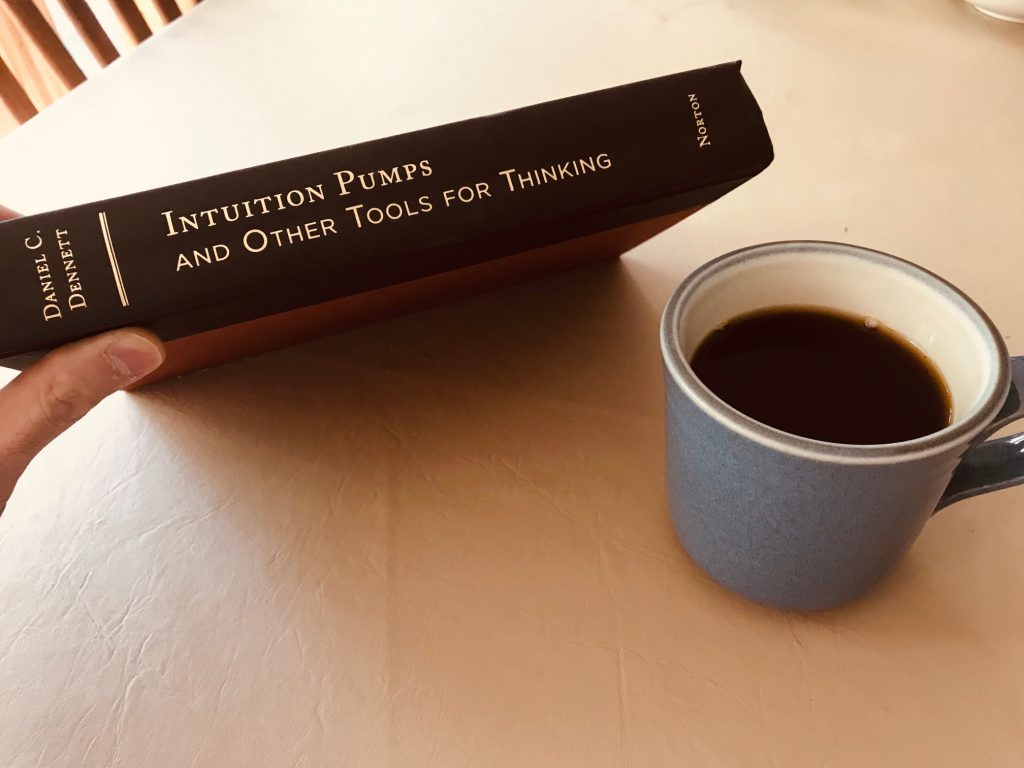I received the manuscript proofs on June 21st and I sent them back yesterday (July 3rd). I would have been slightly, only slightly, faster without the TRACE workshop in Würzburg. When proofreading, I could not go through more than one chapter per day. I made numerous changes, adding and deleting full sentences here and there, and deleting quite a few unnecessary words and phrases. I am sure I introduced a lot of new errors with my “proofreading”, but I am willing to live with that (even though I had a nightmare last night about a glaring typographical error). I only hope that whatever value is in my writing will not be completely overshadowed by my mistakes.
Now, after completing the last bit of work for EPHA, it’s time to ease back into a routine that is sustainable over the long run. This morning I was drawn toward “comfort reading” with my morning coffee (literary equivalent of comfort food). And I picked up Dan Dennett’s Intuition Pumps. I reached the end of Part II (the first 12 chapters), struck once again by the simplicity and brilliance of Dennett, which is mixed with his almost complete lack of a political sensibility.
–

Of course, you might ask: What is the use of political sensibility in philosophy of mind? Especially in the type of philosophy with which Dennett engages (i.e., cognitive science)? We might be placing the cart before the horse with such a question. The type of philosophy of cognitive science we encounter in such books can only result from a neglect of the political dimension of human nature. It is the type of philosophy that flourishes at times of peace and political stability.
The world–according to a Dennett book–is a simple and rational place, which renders the author’s stance, for example, on religious questions very unsurprising. No wonder it’s comforting! I draw comfort from it in the same way I draw comfort from childhood myths. I open Intuition Pumps and I am immediately back in my small dorm room at Trent University (Otonabee College), dreaming naively and trustingly of an exciting career in science.
Next on the horizon is ISTP-2019 in Copenhagen, a strange place where people refer to books as “volumes” and to articles as “pieces”, where problems are “problematics”, where reality becomes “the real” and affect becomes “the affective”, and where everyone is somehow in the “liminal” space of embodied affectivity… (I’d better stop before I talk myself out of attending the conference. I admit, I am neglecting the Sturgeon’s law).
[Take 2] Next on the horizon is ISTP-2019, where I’ll deliver a paper (“a piece”, to be more refined) on concepts and categories, exploring the interplay between Jens Mammen and Eleanor Rosch’s works. I’ll also get to meet Jens Mammen, Jan Smedslund, (hopefully) Niels Engelsted, and several others. Plenty to be enthusiastic about!